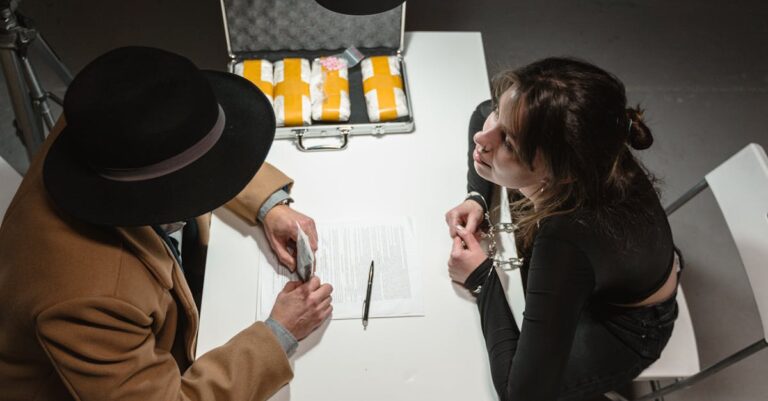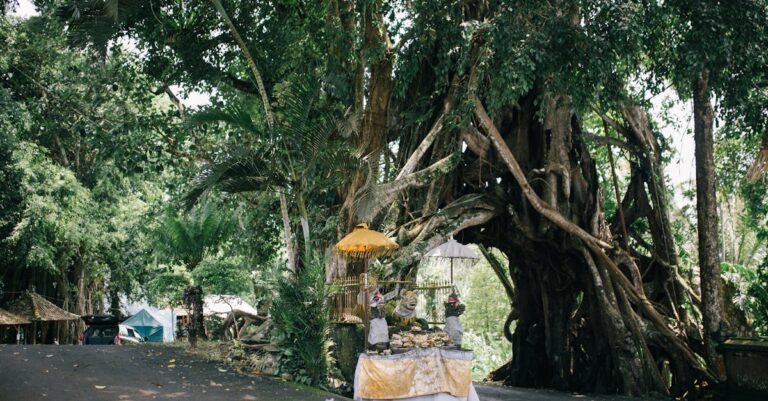
## Crimson Threads
The salt spray stung Marco’s cheeks as he leaned against the railing of *La Volpe*, his small trading galley slicing through the Adriatic. Dusk bled across the water, painting the sky a bruised purple above the Venetian lagoon. He tasted salt, sweat, and ambition. Tonight, he’s meeting with Giancarlo.
Giancarlo’s warehouse reeked of cardamom, peppercorns, and a nervous energy. He found the man huddled over stacks of ledger sheets, his face illuminated by the flicker of a single oil lamp. Giancarlo’s eyes darted to Marco, quick and shrewd.
“You brought it?”
Marco nodded, producing a small pouch from beneath his tunic. Inside lay dried indigo leaves, the deep blue a stark contrast to the amber glow. “From Tripoli.”
“Quality?” Giancarlo didn’t bother with pleasantries. He needed assurance.
Marco let a few grains fall into his palm, crushing them between his fingers. “The best. Freshly pressed.” He paused for effect. “They claim a new method, yields deeper hue.”
Giancarlo’s eyebrows lifted, barely perceptible. “And Suleiman?”
“Content,” Marco replied smoothly. “Demands consistency.” He watched Giancarlo meticulously examine the dye, his silence a weighty thing.
“The wheat?” Giancarlo finally asked, his voice low and raspy.
Marco gestured towards a port official arguing loudly with a farmer – a man red-faced and frantic. “The harvest failed, as planned.” He savored the predictability of it all. “They’ll pay a premium to secure what they can.”
Giancarlo nodded, his gaze hardening. “The merchants in Venice will clamor for the dye. Tripoli receives their wheat. A fair exchange.”
The system was elegant in its brutality. Venice, the shimmering jewel of the sea, relied on vibrant dyes to color its silks and velvets. Tripoli depended on Venetian grain to feed its population. A precarious balance, maintained by a few shrewd men who understood the language of supply and demand—and were willing to bend the rules, or break them entirely.
Marco caught sight of Isabella across the warehouse. Her dark hair was pulled back in a severe bun, highlighting the sharp angles of her face. She moved with an understated grace that captivated him. He’s been trading alongside her for two years, but she remains an enigma. She handles the accounting with a ruthless efficiency that unsettles him and fascinates him in equal measure.
“The accounts?” Giancarlo prompted, pulling Marco back to the present.
Isabella approached, a slim tablet in her hand. “The shipments are finalized. Payments from Venice have cleared.” Her voice was devoid of emotion, a precise instrument delivering information.
“Good,” Giancarlo grunted. “Prepare the next consignment.”
Marco felt a strange mix of exhilaration and dread. He enjoyed playing this game, dancing with the powerful currents of commerce and politics. But he knew it was a dangerous game. One misstep, one loose tongue, could send him plummeting into the murky depths of Venetian prisons or, worse, into Ottoman dungeons.
He sought out Isabella later, finding her on the docks watching the moon rise over the lagoon. The silver light washed over her face, softening its harsh lines.
“You were quiet tonight,” he said, approaching her cautiously.
Isabella didn’t turn to face him immediately. “Observant, as always.” She finally looked at him, her dark eyes reflecting the moonlight.
“Something on your mind?” He asked.
She shrugged, a subtle movement that barely disturbed the stillness of her posture. “Do you ever wonder… if we’ll get caught?”
Marco stared at the water, the rhythmic splash of waves a hypnotic lullaby. “We are careful. We know what we’re doing.”
“Are we?” She challenged, her voice barely audible above the lapping water. “Or are we just convincing ourselves?”
He wanted to dismiss her doubts, to reassure her with empty promises. But he found himself staring at her, seeing the weight of their arrangement in her eyes.
He thought about his father, a simple fisherman who dreamed of a better life for his son. Marco had surpassed that dream, amassing wealth and influence beyond anything his father could have imagined. But at what cost? He’s lost friends, betrayed trust, and traded his conscience for a share of the pie.
He remembered Luca, a young merchant he’s mentored early in his career. Luca had discovered an alternative source of indigo, cheaper and more abundant than the Tripolitan variety. Marco convinced him to stay silent, offering a generous sum in exchange for his cooperation. Luca disappeared shortly afterwards. Marco pushed the memory aside, burying it under layers of ambition and justification.
“It’s business,” he said finally, his voice flat. “That’s how Venice thrives.”
Isabella’s expression didn’t change, but her gaze felt like a laser beam dissecting him.
“And what about morality?” she asked, her voice softer now. “Does that factor in?”
Marco didn’t respond, unable to conjure a convincing answer. He felt exposed, stripped bare by her simple question.
Weeks later, a Venetian envoy arrived in Tripoli with a formal complaint: the indigo shipments were substandard. Suleiman demanded an explanation, threatening to halt all trade with Venice.
Giancarlo summoned Marco and Isabella to his private chambers, a lavish space adorned with Persian rugs and opulent tapestries.
“Someone is sabotaging us,” Giancarlo declared, his face contorted with anger. “The dye is being diluted.”
Marco felt a cold knot forming in his stomach. He looked at Isabella, her face impassive, betraying no hint of emotion.
“Who?” Giancarlo demanded, his voice rising in pitch. “Tell me who is responsible!”
Marco’s mind raced. The accusations were baseless, a desperate attempt to save face after a failed harvest in Venice and a shortage of wheat in Tripoli. But who was behind it? He suspected Luca’s family. They had the knowledge and motive to disrupt their arrangement. But he lacked proof.
“I don’t know,” Marco said, his voice steady despite the tremor in his hands.
Giancarlo glared at him. “You better find out, Marco.” He paused, his eyes narrowing. “Or you’ll be facing consequences far worse than losing a few shipments.”
Isabella stepped forward, her voice calm and authoritative. “We will investigate thoroughly, Giancarlo. We’ll uncover the truth.” She turned to Marco, her eyes locking with his. “We have no choice.”
The investigation led them down a labyrinth of deceit and betrayal. They uncovered a network of disgruntled merchants, jealous competitors, and opportunistic smugglers all vying for a piece of the lucrative dye trade.
One evening, Marco found Isabella poring over old ledgers in her small study. The lamplight cast long shadows across the room, illuminating her focused expression.
“You’re working too hard,” he said, approaching her cautiously.
She looked up, her eyes weary but determined. “I found something.” She pushed a ledger sheet towards him. It contained meticulous records of payments, shipments, and correspondence—all carefully disguised within innocent-looking transactions.
“Luca’s family,” Marco murmured, recognizing the familiar handwriting. “They were smuggling inferior dye into Venice, undermining our shipments.”
“And they weren’t working alone,” Isabella said, her voice low and serious. “Someone in Venice was helping them—someone with access to the records, someone who knew how to manipulate the system.”
Marco stared at her, his blood turning to ice. Who could it be? He thought of the countless officials, merchants, and bureaucrats he’s dealt with over the years—all vulnerable to bribes and susceptible to manipulation.
Suddenly, a memory surfaced: a casual conversation with Giancarlo’s nephew, a young clerk in the Venetian customs office. The boy had complained about his meager salary and expressed resentment towards the wealthy merchants who controlled Venice’s trade.
“It was him,” Marco whispered, his voice barely audible. “Giancarlo’s nephew.”
Isabella nodded slowly. “He was promised a share of the profits, wasn’t he? A way to escape his poverty.”
Marco felt a wave of nausea wash over him. Giancarlo had been using people all along, sacrificing his own family for personal gain. He’s played a dangerous game and lost control of it all.
He confronted Giancarlo, presenting him with the evidence he’s collected. The old man didn’t deny it. He simply shrugged, dismissing Marco and Isabella’s efforts as insignificant blips in the grand scheme of things.
“This is how power works, Marco,” Giancarlo sneered. “You either play the game or get crushed by it.”
Marco felt a surge of anger and defiance. He couldn’t accept Giancarlo’s cynical worldview, his belief that morality is a weakness and betrayal is a virtue.
He turned to Isabella, searching for her gaze. He saw a spark of shared resolve in her eyes—a determination to break free from the corrupt system that had ensnared them both.
“We’ll expose him,” Marco said, his voice firm. “We’ll tell the Doge what he’s been doing.”
Isabella nodded, her face set in a mask of steely resolve.
The ensuing scandal rocked Venice to its core. Giancarlo was stripped of his titles and imprisoned, his vast fortune seized by the state. The network of smugglers and corrupt officials was dismantled, their illicit activities brought to light.
Marco and Isabella stood on the docks, watching *La Volpe* depart for Tripoli. The setting sun painted the sky in hues of crimson and gold, mirroring the colors of the dye they’ve traded for so long.
“What now?” Isabella asked, her voice soft but resolute.
Marco looked at her, seeing beyond the enigmatic facade she’s presented for so long. He saw a woman of intelligence, integrity, and unwavering courage.
“We start fresh,” he said, reaching for her hand. “A new venture, a chance to build something honest, something meaningful.”
He squeezed her hand gently. “Together.”
The wind carried the scent of salt and spice, a promise of new beginnings. The crimson threads that had bound them together in a web of deceit and betrayal now symbolized a path towards a future built on trust, respect, and a shared commitment to breaking free from the shadows of Venice’s past.


